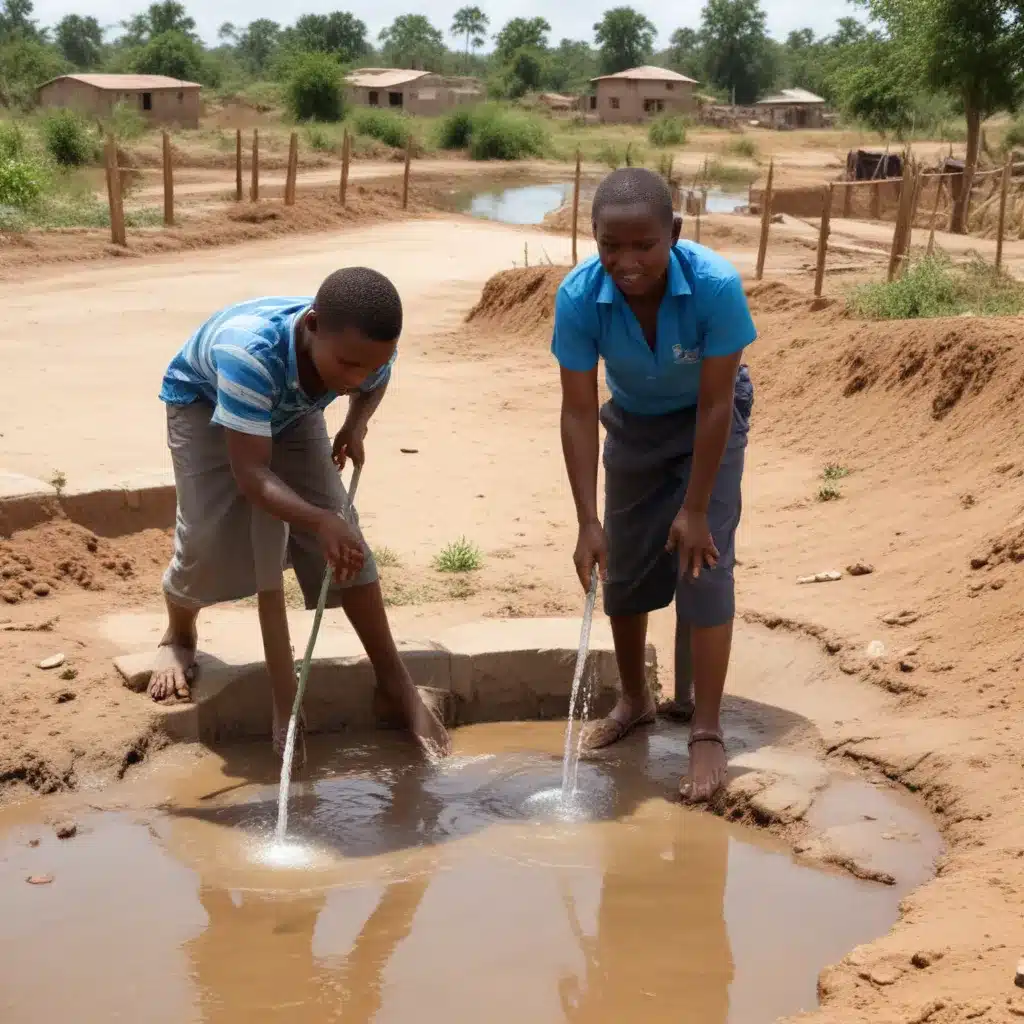
Unlocking Collaborative Solutions for Water Security in the Indo-Pacific
The Indo-Pacific region faces a critical water crisis, with an estimated 500 million people lacking access to basic water supplies and 1.14 billion lacking access to basic sanitation. Unreliable water, sanitation, and hygiene (WASH) services, a lack of clean drinking water, increased pollution, and the devastating impact of climate shocks have all contributed to this pressing challenge. As the region’s population and agricultural demands grow, the strain on already-weak water systems will only intensify.
To address this crisis effectively, the water sector requires a coordinated, strategic approach that brings together diverse stakeholders. Public-private partnerships (PPPs) offer a powerful model for fostering climate-resilient WASH infrastructure and services across the Indo-Pacific. By aligning the expertise, resources, and innovation of the public and private sectors, these collaborative initiatives can unlock sustainable solutions that strengthen water security and community resilience.
Strengthening Water Governance Through Inclusive Partnerships
One of the biggest barriers to effective water programming in the Indo-Pacific is poor governance of water systems and resources. Water crises often transcend national borders, requiring transnational cooperation that is frequently lacking. Additionally, the exclusion of local partners, such as community leaders and civil society organizations, undermines the long-term sustainability of water projects.
Successful PPPs must prioritize inclusive governance structures that integrate stakeholders at all levels. Regional initiatives like the Mekong-U.S. Partnership and the International Union for Conservation of Nature’s Building River Dialogue and Governance (BRIDGE) program exemplify this approach, promoting efficient water management through collaborative frameworks and knowledge sharing.
The Asian Development Bank’s (ADB) Asia and the Pacific Water Resilience Hub provides a valuable online platform for building such partnerships, enabling diverse actors to strengthen water security across the region. By fostering cooperation and information exchange, these governance-focused initiatives help ensure that water programming is tailored to local needs and supported by buy-in from community members.
Catalyzing Private Sector Engagement
The Indo-Pacific region faces a critical funding gap for water infrastructure and services, with most countries needing to allocate 1-2% of their annual GDP to meet Sustainable Development Goal 6. Mobilizing private sector investment is crucial to bridging this gap and driving sustainable, climate-resilient WASH solutions.
Private companies can contribute more than just financial resources to PPPs. Their expertise, innovative technologies, and access to supply chains can significantly enhance the design, delivery, and long-term resilience of water services. The success of public-private water partnerships in Manila, which have provided 24-hour water access to approximately 12 million people, demonstrates the transformative potential of these collaborations.
However, barriers such as poor water infrastructure, local governance challenges, and investment risks have historically deterred private sector engagement. Initiatives like the Australian Water Partnership’s support for the Alliance for Water Stewardship are working to overcome these obstacles by actively promoting private sector involvement in water resource management and stewardship.
Raising awareness of the water crisis and its implications for economic growth is key to incentivizing private sector participation. Showcasing successful PPP models and highlighting the business opportunities in the water sector can inspire local and international companies to invest in climate-resilient WASH infrastructure and services.
Aligning Public Sector Priorities for Long-Term Sustainability
Alongside increased private sector investment, stronger public sector participation and policy support are essential for the success of water programming in the Indo-Pacific. Currently, many governments prioritize short-term economic and agricultural growth over environmental sustainability, leading to issues like unregulated industrial and agricultural runoff that further damage water systems.
Realigning public sector priorities to account for long-term water security and environmental needs is crucial for establishing an enabling environment for PPPs. Robust government policies, regulations, and oversight can help curb unethical practices, such as the dumping of untreated sewage, and create a more stable framework for sustainable water management.
By forging durable international partnerships, the public sector can also play a vital role in coordinating regional water security efforts. For example, India’s collaborations with the Netherlands and the Japan International Cooperation Agency (JICA) on various WASH programs demonstrate the power of public-public partnerships to drive impactful, long-term water initiatives.
Leveraging Digital Innovation and Climate-Resilient Infrastructure
Rapid urbanization and the escalating impacts of climate change in the Indo-Pacific require the development of efficient, climate-resilient water and WASH infrastructure. Investing in such infrastructure can deliver a benefit-cost ratio as high as 7:1 in the region’s least-developed countries, making a strong economic case for action.
Integrating digital technologies into water systems and services is a key component of building climate resilience. However, digital uptake remains uneven across the Indo-Pacific, with significant gaps between more- and less-developed countries. Initiatives led by organizations like the U.S. Agency for International Development (USAID) and the ADB are working to address this disparity by mainstreaming digital solutions and building the necessary human capital and financing mechanisms.
PPPs can play a pivotal role in driving the deployment of climate-resilient, digitally-enabled WASH infrastructure. By combining the public sector’s policy expertise and financing capacity with the private sector’s technological innovation and implementation capabilities, these collaborative efforts can deliver sustainable, scalable solutions that meet the region’s evolving water needs.
Building a Water-Secure Future Through Collaborative Action
Ensuring the stability and resilience of the water sector is crucial to promoting security and prosperity in the Indo-Pacific. The international community has taken important steps to address WASH and climate challenges in the region, but current initiatives remain insufficient to meet escalating demand.
Fostering public-private partnerships is a strategic imperative for strengthening water security and building climate resilience across the Indo-Pacific. By integrating local communities, leveraging innovative technologies, and mobilizing investment from both the public and private sectors, these collaborative initiatives can deliver sustainable, far-reaching solutions that safeguard water resources and empower resilient communities.
Through coordinated action and a shared commitment to water security, the diverse stakeholders of the Indo-Pacific can overcome the region’s water crisis and pave the way for a more prosperous, climate-resilient future. Visit the Joint Action for Water website to learn more about ongoing initiatives and explore opportunities for collaborative engagement.

